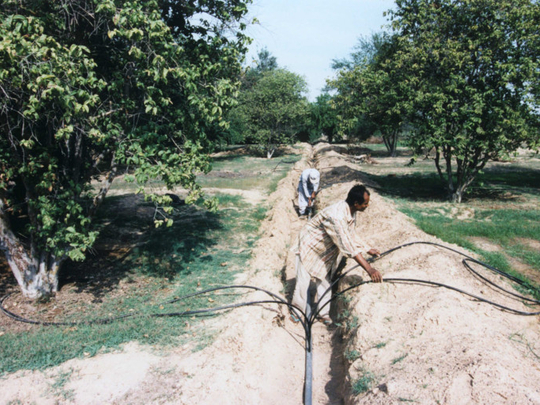
Very early in my career, I was part of the team that organised the visit of the prime minister of Thailand to Bahrain. In the course of that, I helped negotiate and draft a number of agreements, including one on food security. But it was only during discussions with Thai businessmen the following day that I came to realise its full importance: that we in Bahrain and the GCC overall import between 80-90 per cent of our food.
The World Health Organisation (WHO) defines food security as “when all people at all times have access to sufficient, safe, nutritious food to maintain a healthy and active life”. We in the GCC have food security for the time being but we are not self-sufficient, and our demand massively exceeds our domestic production. We lack fresh water resources, our soil is fragile and the ever-increasing effect of climate change does not help our cause. We are dependent on international trade to meet our most basic needs.
The armed conflicts that surround us are indeed of grave concern and should naturally be our nations’ main area of concentration. Yet, though our region has been no stranger to conflicts for many years, we have still managed to grow significantly, both economically and financially.
Armed conflict and political disagreements, though, do play a role in our food security. Geopolitical tensions in the area and the disruption of import routes would be a nightmare for us. We know that Iran has in the past threatened to shut the Strait of Hormuz, and while 40 per cent of the world’s oil trade passes through that waterway, so too do our most basic necessities. The alternative route of Bab Al Mandab, on the other hand, has always entailed the risk of piracy, and present events in Yemen do not suggest any early relief.
Can we imagine emulating the hardships of the Europeans during the World Wars when rationing was in place? Before those conflicts, both Britain and Germany had relied heavily on imports to feed their people and also, importantly, to supply their war effort. Most imports came across the Atlantic Ocean, and both countries tried to blockade one other, resulting in shortages and rationing on both sides. In the end, the British blockade of Germany played a key role in the Allied victory. I am not implying here that a war in the region is imminent and that we are going to starve, but the prospect and consequences of shutting of our main vital passage of food should be alarming.
The GCC is taking some action by investing in strategic storage facilities and rail infrastructure, and attempting to reduce dependence on the Strait of Hormuz via routes such as Salalah, which overlooks the Arabian Sea. There have also been many attempts to achieve self-sufficiency, notably the wheat production project in Saudi Arabia which cost a staggering $5 billion a year between 1984 and 2000, and which is now in the process of being phased out. Primarily, though, we have chosen to invest in agricultural farmland across the world instead of relying on domestic production. But all of this has happened without us, the people of the region, giving much thought to the issue.
Yes, we have been blessed with an abundance of the most necessary natural resources, oil and gas. And yes, in an area of great scarcity, water used for industrial purposes can bring as much as 300 times more economic value than agriculture in Saudi Arabia and over 1,000 times in the UAE. But industrial and petrochemical products are used to feed plants and machinery; they do not feed people. As early as 2007, we faced an international world food price crisis that caused a global food shortage and forced many countries to halt exports, and even here in the GCC, we could not secure supplies during that period. And while, generally speaking, the strong correlation between oil and international food prices overall protects us from any sudden spike in food prices in the immediate future, looking beyond that is what worries me.
What will happen to us if oil runs out at some point in the future or sales drop when a substitute for oil is found, and our collateral is then jeopardised? Will future generations have to consider moving and making a living in countries that are self-sufficient? Are they willing to accept a future as “food refugees”? Maybe, instead of focusing on industrial investments, we should consider reallocating funds to secure our future food supplies, for example by supporting agriculturalists, protecting and subsidising farmland, and investing in and developing new food technology. We might not miss those funds today, but in the long-run, they will play an essential role, not only in sustaining development, but in sustaining life as well.
Hatem Abdulhameed Hatem is a Bahrain-based writer.








